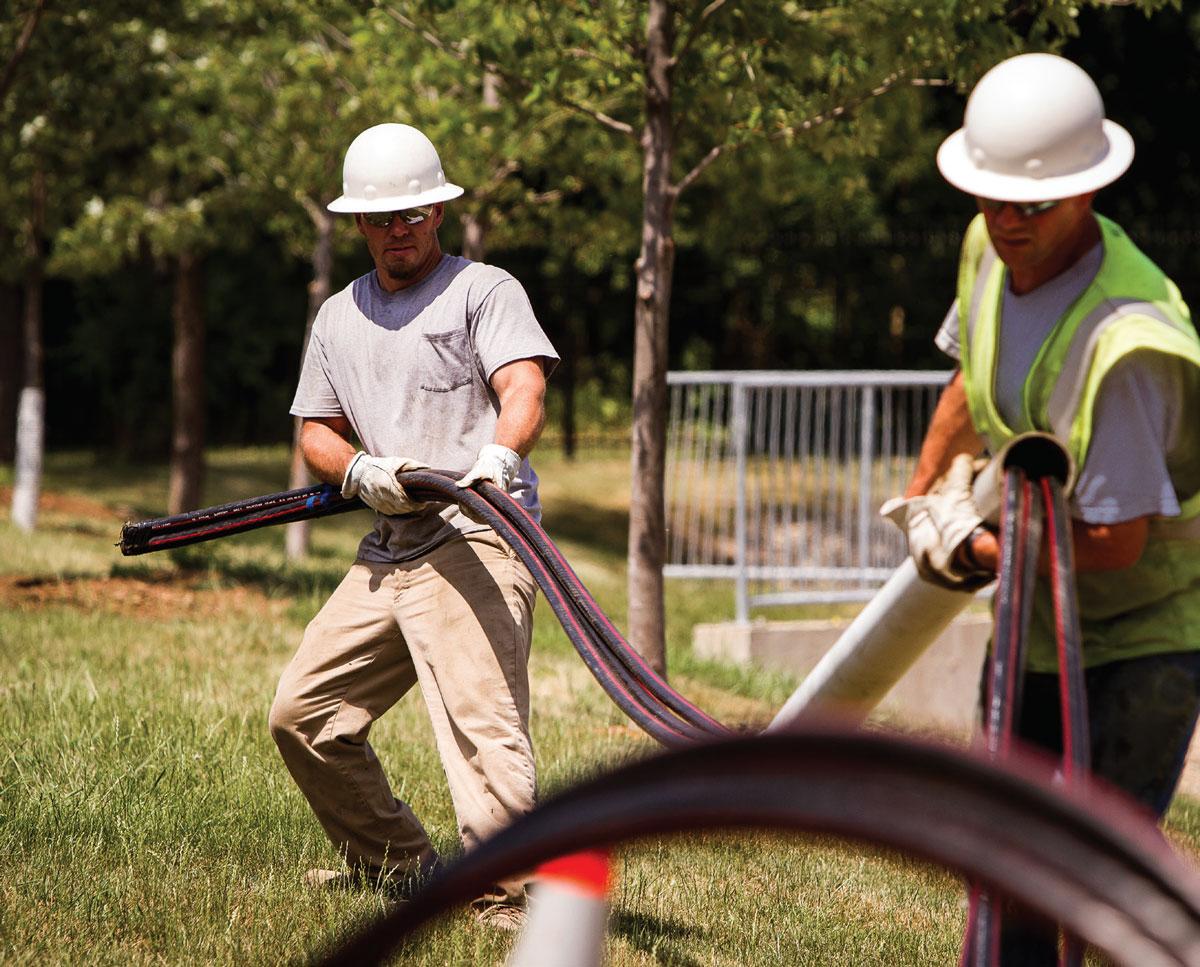Strategy and Climate
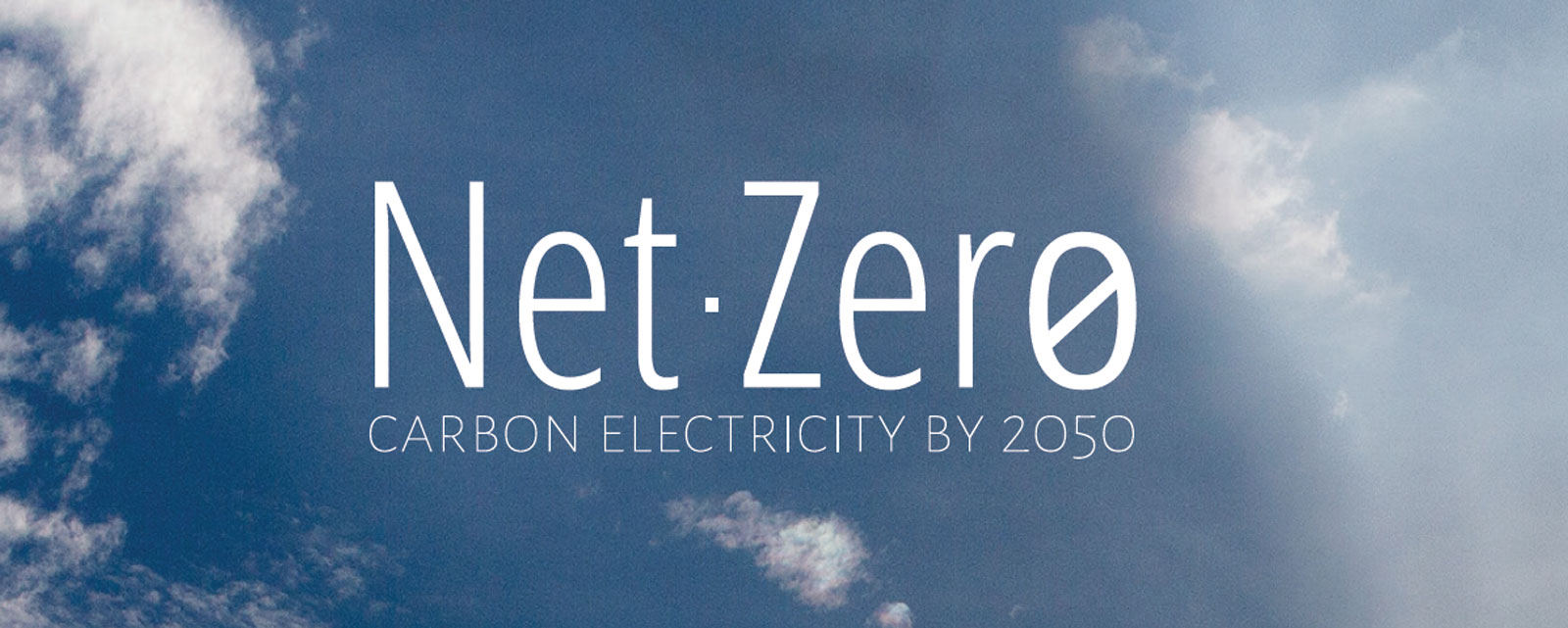
MGE is building a utility of the future, advancing clean energy and new technologies for the benefit of all—our customers, investors and broader community. Through our partnerships and the application of science and technology, we are working toward ambitious energy goals while fulfilling our mission to provide safe, reliable, affordable and sustainable energy to our communities.
Powering a more sustainable future
In May 2019, we announced a goal of net-zero carbon electricity by the year 2050. This target is based on the latest climate science. It is consistent with the work of the Intergovernmental Panel on Climate Change (IPCC) and its assessment of limiting global temperature increases to 1.5 degrees Celsius. Our 2050 goal reflects our vision and signals our direction, but it doesn't determine our pace. Every decision we make is in the context of achieving deep decarbonization as quickly as we can while fulfilling our obligation as a provider of safe, reliable, affordable and sustainable energy.
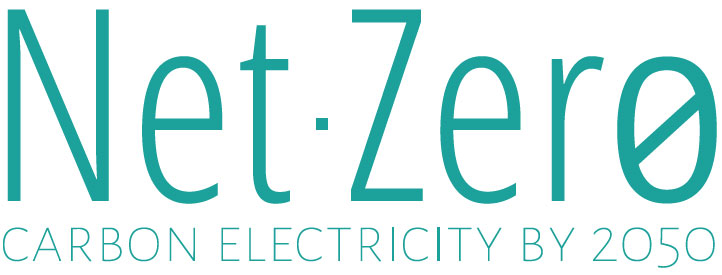
Achieving net-zero by 2050 will require the use of technologies not yet commercially available or cost-effective, but we are well on our way toward realizing our commitment to sustainability, to industry leadership and to those we serve.
MGE is committed to achieving net-zero carbon electricity by 2050 for all those we serve.
Energy 2030
MGE already has reduced carbon emissions 19% since 2005, our baseline. Under our Energy 2030 framework for a more sustainable future, introduced in November 2015, we committed to reducing carbon emissions at least 40% by 2030. This target is consistent with U.S. emissions targets for the 2030 timeframe established as part of the landmark Paris Agreement on climate change.
Energy 2030 also has a goal of 30% renewable energy by 2030 and an interim goal of 25% by 2025, which we expect to exceed by year-end 2021. We have said since establishing our goals that if we can go further faster by working with our customers, we will.
Energy 2030 set our foundational objectives for building your community energy company for the future. It guides our strategy and our work to:
- Provide customers with options they want today and in the future,
- Help customers use energy efficiently and control future costs for all customers,
- Transition MGE to a more environmentally sustainable energy supply,
- Provide a dynamic electric grid that can integrate all energy technologies to serve customers, and
- Ensure that new and changing technology serves all customers equitably.
Climate science partnership with the University of Wisconsin
To inform our work for achieving deep decarbonization and net-zero by 2050, MGE is working with scientists and experts at the University of Wisconsin-Madison's Nelson Institute for Environmental Studies and the Department of Atmospheric and Oceanic Sciences. The university is providing expert input and perspective to help evaluate our net-zero carbon goal in the context of the analyses done by the IPCC and helping to ensure our goal is consistent with the IPCC assessment.
Our strategies for deep decarbonization
The U.S. Mid-Century Strategy (MCS) for Deep Decarbonization is the United States' strategy for meeting the goals of the Paris Agreement on climate change to limit global warming. Both the MCS and the IPCC rely on decarbonizing electric generation, using energy efficiently and electrifying other energy uses, including transportation. These are the strategies MGE is pursuing and will continue to pursue to achieve deep decarbonization and net-zero carbon electricity.
Growing our use of clean energy
Since announcing our Energy 2030 framework in November 2015, we have developed projects that will increase our owned renewable capacity by roughly 600%. Growing our use of renewable resources is a part of our strategy for achieving net-zero carbon electricity by 2050.
Our recent clean energy projects include:
- Building our 66-megawatt (MW) Saratoga Wind Farm in Iowa. Our largest and most efficient wind farm, Saratoga came online in early 2019 to serve 47,000 households.
- Purchasing a 16-MW share of the Forward Energy Center wind farm in Wisconsin in 2018.
- Expanding our highly successful community solar program, Shared Solar, with a 5-MW solar array in our service territory, expected online in 2020.
- Purchasing 100 MW of solar capacity from the Badger Hollow Solar Farm in Iowa County, Wis. Badger Hollow is expected to provide 50 MW by the end of 2020; another 50 MW, if approved, is expected online by the end of 2021.
- Purchasing 50 MW of solar capacity from the Two Creeks Solar project, expected online by the end of 2020.
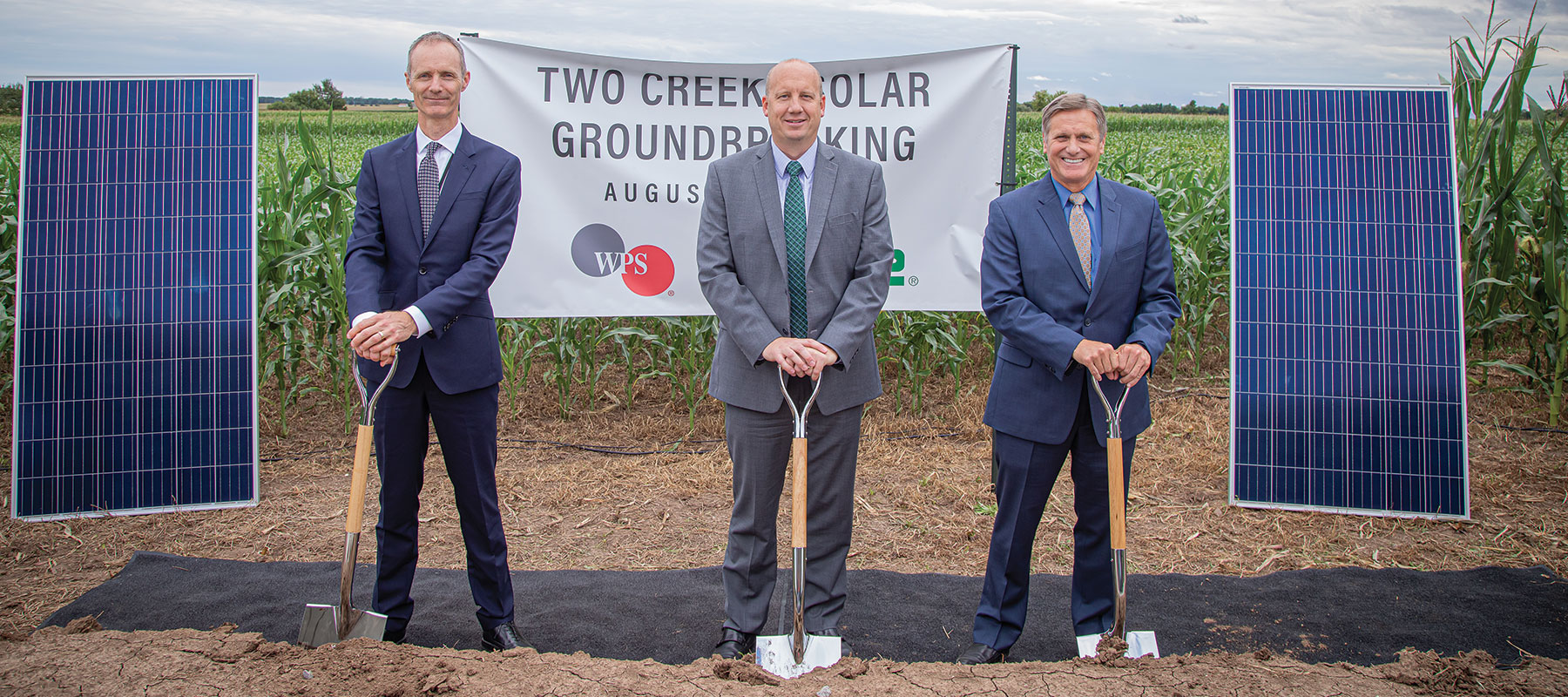
Our mix of resources includes:
Badger Hollow Solar Farm, Iowa County (Expected online in 2020, 2021).
Blount Generating Station, Madison.
Columbia Energy Center, Portage.
Combustion turbines, Madison and Marinette.
Dane County Airport Solar, Madison (Proposed).
Elm Road Generating Station, Oak Creek.
Forward Energy Center wind farm, Dodge and Fond du Lac counties.
Rosiere Wind Farm, Kewaunee County.
Saratoga Wind Farm, Howard County, Iowa.
Morey Field Solar, Middleton Municipal Airport (Expected online in 2020).
Shared Solar, Middleton Operations Center.
Solar photovoltaic units, Dane County.
Top of Iowa Wind Farm, Worth County, Iowa.
Two Creeks Solar, Manitowoc County (Expected online in 2020).
West Campus Cogeneration Facility, Madison.
Ongoing transition from fossil fuels
MGE has no controlling interest in coal-fired resources and announced several years ago that we would not be investing further in coal-fired plants. In 2011, MGE discontinued the use of coal at the only generating facility in which we have sole ownership, our Blount Generating Station.
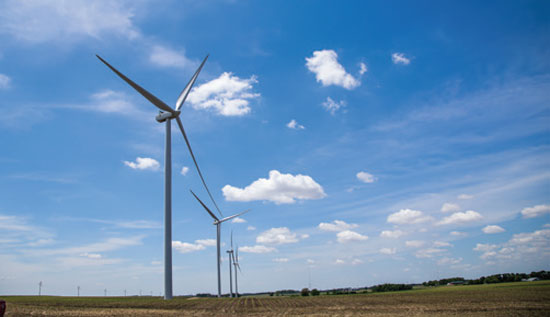
In 2016, we reduced our minority ownership in the Columbia Energy Center. MGE reached an agreement with the plant's co-owners to reduce our MW capacity share by about 14%.
Additionally, as part of a rate case settlement agreement in 2018, MGE accelerated the depreciation of certain assets, including our combustion turbines, Blount Generating Station and Columbia Energy Center Unit 1. The accelerated depreciation schedule will help the company move forward with investments in cleaner sources of energy.
Resource planning and carbon regulation
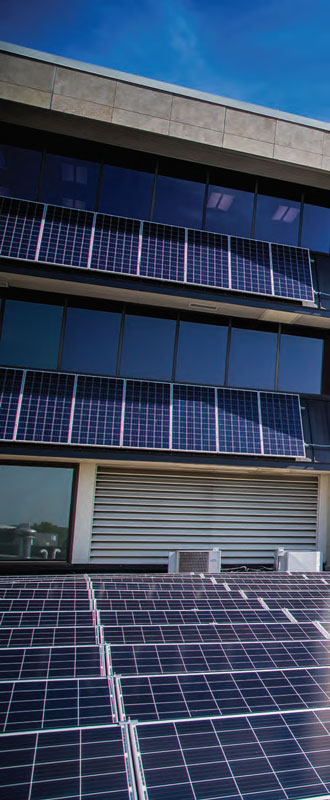
When making generation decisions, MGE engages in extensive resource planning analysis and modeling, which consider many factors including forecasted energy use projections; long-term impacts on customers, investors and the environment; potential future environmental regulations; assumptions related to the anticipated costs of fuel and many other factors related to energy production. Our economic analysis explicitly includes a possible projected carbon surcharge to help ensure our decisions are financially sound—regardless of whether or how carbon is regulated in the future.
In addition, large new generating facilities are reviewed by the Public Service Commission of Wisconsin to ensure the project is in the public interest. For larger projects, different generating scenarios are modeled in our regulatory application to demonstrate the need and to justify the cost. All proposals and decisions by the state regulatory body are part of the public record.
Reducing emissions, improving air quality
For the past 15 years, we have made strides to reduce air emissions by installing new emission reduction equipment and improving equipment efficiencies with our current generation fleet. As we work toward our ambitious goal of net-zero carbon electricity by 2050, we have continued to make significant investments in local and regional renewable generation.
We also purchase power through contracts and from the Midcontinent Independent System Operator market.
We continue to transition to cost-effective, clean energy while also working with customers on energy efficiency and conservation efforts to reach our carbon reduction goals.
Ensuring that new and changing technology serves all customers equitably is one of our key objectives under our Energy 2030 framework. We are working to build a smarter, cleaner community grid that serves to benefit all customers.
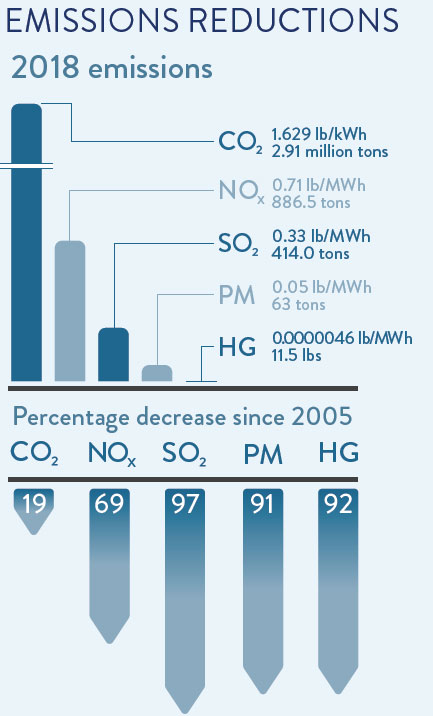
Carbon dioxide (CO2) emissions are calculated from generating units owned by MGE, power purchase agreements and power purchased by MGE on the regional Midcontinent Independent System Operator market. The market purchase emission rate is based on a seven-state regional average CO2 emission profile from all power produced in Wisconsin and the surrounding Midwest states.
Nitrogen oxide (NOx), particulate matter (PM), mercury (Hg) and sulfur dioxide (SO2) emission rates are calculated from MGE-owned generation assets, including MGE's share of jointly owned units. MGE is part owner of the Columbia Energy Center, Elm Road Generating Station, West Campus Cogeneration Facility and the Forward Energy Center.
Harnessing methane
MGE continues to reduce greenhouse gas (GHG) impacts with an initiative that generates electricity from the combustion of methane, which is produced locally by cow manure. As a GHG, methane is at least 25 times more potent than carbon; however, methane as a fuel burns much cleaner and produces 50% less GHGs than coal.
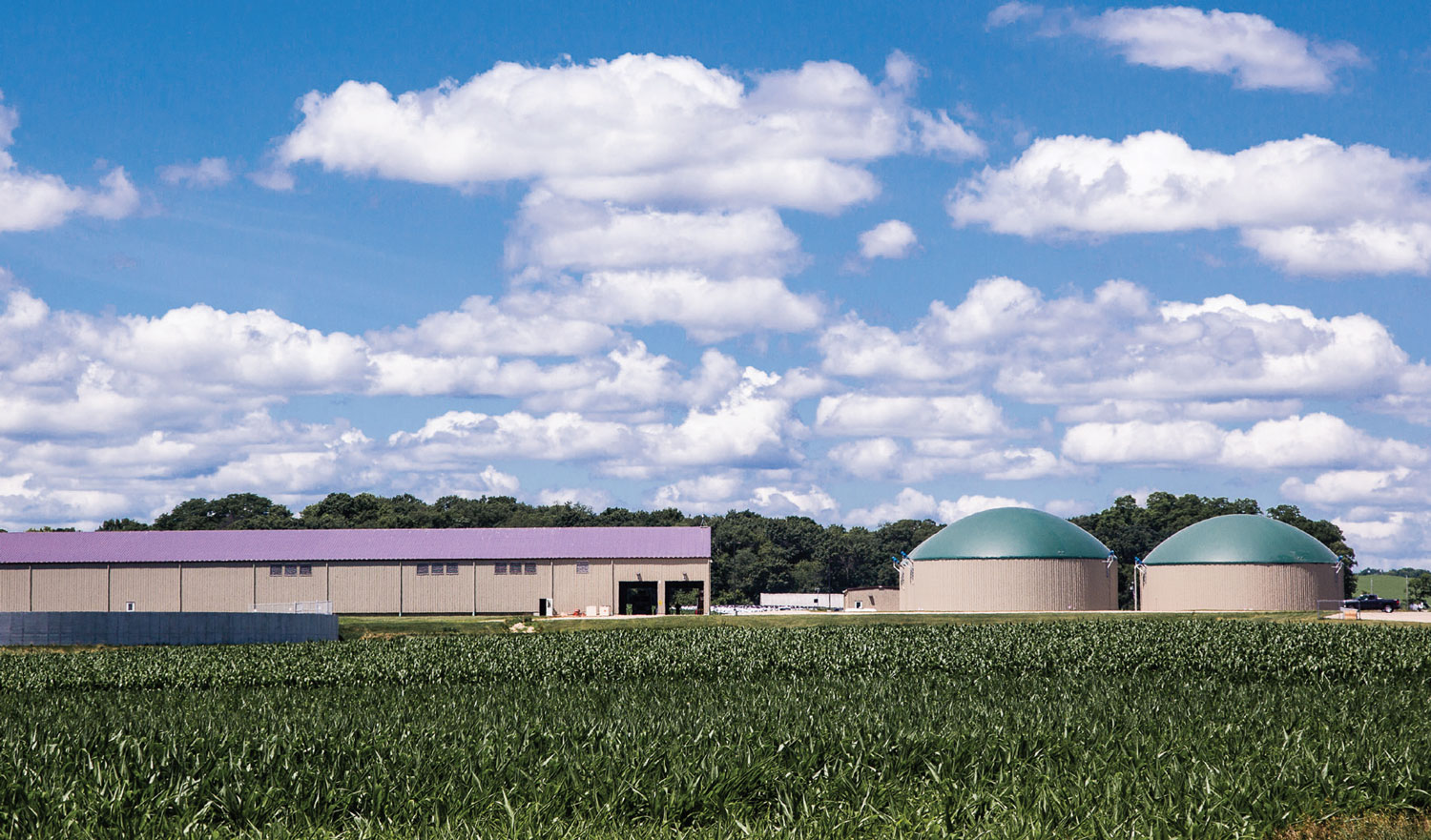
MGE receives energy from a manure digester. The digester converts cow manure from local farms into electricity. For 2018, the manure digester generated more than 11.5 million kilowatt-hours of electricity, which is enough to power nearly 2,000 households.
Under an Environmental Protection Agency requirement, MGE monitors, measures and reports several GHG emissions annually. MGE tracking covers power plant emissions, natural gas distribution and smaller combustion sources.
Partnering with our customers to grow clean energy
Shared Solar
We are expanding our popular community solar program, Shared Solar, with a 5-MW array to be built in 2020 at the Middleton Municipal Airport. Seventy percent of the project will serve our Shared Solar program, which offers customers locally generated solar energy.
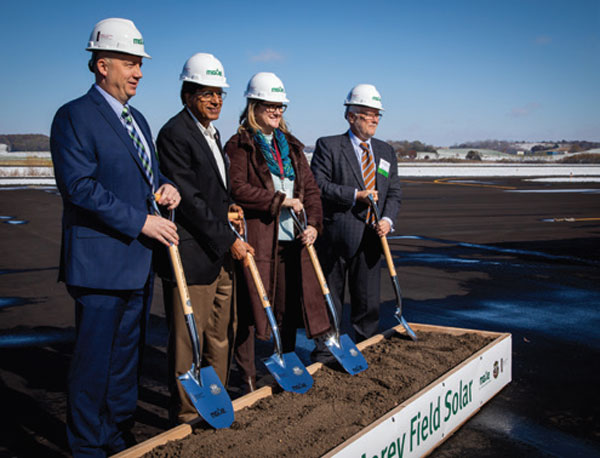

The voluntary program began in early 2017 with a 500-kilowatt (kW) array in the city of Middleton. When complete, the expansion will lower the price per kilowatt-hour (kWh) for new and existing participating customers.
Renewable Energy Rider
Our Renewable Energy Rider gives MGE the ability to partner with larger business customers who seek customized renewable energy solutions. It is designed to meet the needs and goals of companies that support or have signed on to the Corporate Renewable Energy Buyers' Principles, a collaboration facilitated by the World Resources Institute and the World Wildlife Fund.
State regulators approved in 2019 our first Renewable Energy Riders with the City of Middleton and the Middleton-Cross Plains Area School District. The City and school district will purchase a 1.5-MW share of solar power from a 5-MW array that will be built at the Middleton Municipal Airport.
MGE and Dane County are partnering on a solar installation of up to 9 MW at the Dane County Regional Airport under our Renewable Energy Rider. The project, if approved by regulators, will cover about 58 acres.
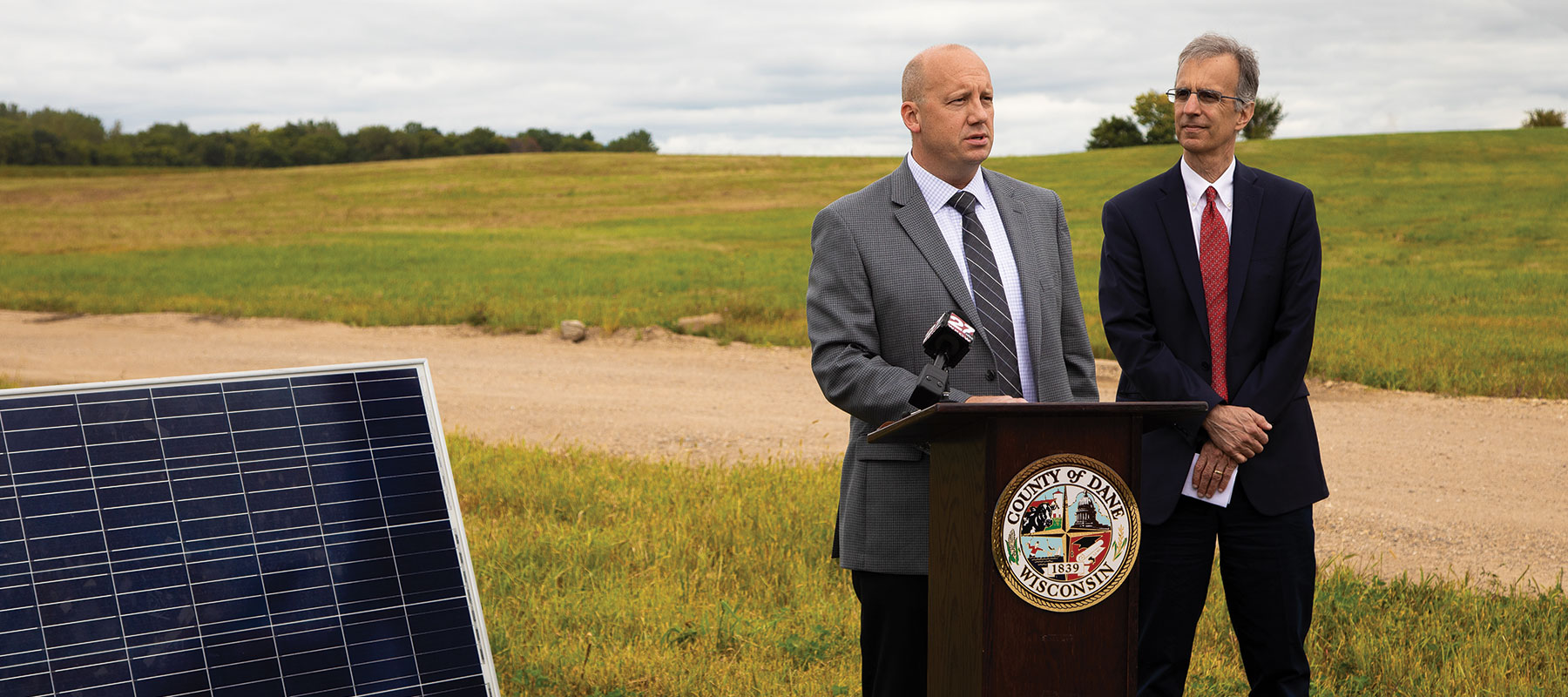
MGE also is proposing a solar array, the O'Brien Solar Fields, of up to 20 MW in Fitchburg, Wis. Part of the array would serve larger customers under Renewable Energy Rider agreements.
Green Power Tomorrow

Green Power Tomorrow (GPT) is our green pricing program. At a penny more per kWh, GPT is a convenient and effective way for customers to support renewable energy and offset their greenhouse gas emissions. Today, more than 9,600 customers buy green power through this program. Our GPT program is largely served by our wind resources in the region.
Customer-owned solar
We also work with customers who want to install solar to help power their homes or businesses. These customers connect to our community grid and sell their excess electricity to MGE. We have partnered with more than 675 customers to connect their solar installations to our grid.
Collaborations with our communities
MGE has an ongoing collaboration with the City of Madison around renewable energy, electric vehicles, energy efficiency and conservation. For more information about our partnership to grow the use of all-electric mass transit, read the Leading the charge for transportation electrification section below.

MGE also serves as a member of the Dane County Council on Climate Change. The council includes local government, businesses, utilities and environmental organizations. MGE's partnership with local stakeholders through the council offers another opportunity to work toward common goals, including deep decarbonization.
Advancing energy efficiency and conservation
Energy efficiency is a key strategy for reducing carbon emissions and for reaching our energy goals. MGE is committed to providing customers with the tools and resources they need to make wise energy choices that help reduce their individual carbon footprints.
We strive to "meet customers where they are" to engage them in energy efficiency. Through the use of new technologies, hands-on workshops, energy education, conservation kits and rate options like Time-of-Use, MGE is helping to empower customers to take control of their energy use to better manage long-term costs and to achieve deep decarbonization.
New smart thermostat program launched
Electric use peaks during stretches of hot, humid days when air conditioners are running in a majority of homes and businesses. These periods of high electric use put pressure on utilities to generate and distribute enough electricity to everyone who needs it.
Building on the success of our Nest thermostat pilot with 500 customers, we launched in 2019 a new program, MGE ConnectTM. With customers' permission, minor temperature adjustments are made to participating customers' smart thermostats to reduce energy use during periods of high demand.
MGE Connect is now double the size of our original smart thermostat demand response program and includes a number of smart thermostat brands. The program will help MGE better understand the role and impact of smart devices in managing our community grid while helping customers reduce their energy use with minimal possible impact on comfort.
MGE also is exploring opportunities to work with community partners to make smart thermostats available to low-income households. MGE is committed to working with customers and others to help ensure all customers have the opportunity to share in the benefits of new technologies.
Business customers conserve with On Demand Savings
MGE's On Demand Savings (ODS) program offers large customers, such as plastics manufacturer Placon (pictured below), tools and strategies to reduce their energy use, especially during periods when demand for electricity is at its peak.
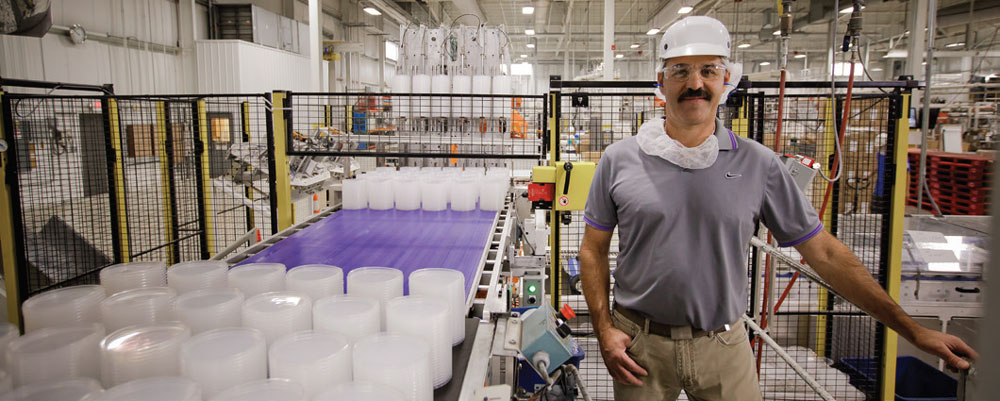
ODS uses an online dashboard to give customers near real-time energy usage information, enabling them to act to cut costs and to reduce their environmental footprint. The program was recognized in 2018 with an Inspiring Efficiency Award for Innovation by the Midwest Energy Efficiency Alliance, a regional organization dedicated to advancing energy-efficient technologies, products and best practices.
Ten years of Mpowering Madison
MGE is a founding member, with the City of Madison, of Sustain Dane's MPower Madison Business Champion Program. The sustainability program for local businesses recently celebrated 10 years, tallying more than 500 sustainability projects in its history. The projects include energy efficiency, waste reduction, renewable energy purchases and production, and alternative transportation, among others. Sustain Dane estimates that these projects have resulted in 19.2 million kWh conserved, 60.3 million pounds of CO2 avoided and $2.1 million saved each year.
Working with Focus on Energy®
Focus on Energy, Wisconsin's statewide energy efficiency and renewable resource program, is MGE's partner in educating customers about the value of energy efficiency and conservation. MGE works with residential and commercial customers seeking incentives and rebates through Focus on Energy to make energy-saving improvements. For example, Klein's Floral and Greenhouses in Madison used Focus on Energy incentives to implement a number of energy efficiency measures, including new high-efficiency heaters and boilers, ceiling insulation and double-pane windows.

The partnership later earned Focus on Energy a dotComm Award, which recognizes excellence in web creativity and digital communications. The Industry Influencer Award was for MGE's "takeover" of Focus on Energy's Instagram page in June 2019. During the daylong "takeover," members of MGE's marketing team on Instagram shared their day-to-day encounters with energy efficiency, including their attendance at Focus on Energy's award presentation for Klein's own excellence in energy efficiency.
Meeting customers where they are
Our residential and community services team continues to develop new ways to connect with customers around energy efficiency, new technologies and other energy-related needs. Deepening our engagement with customers is one of our objectives under our Energy 2030 framework.

With conservation kits from Focus on Energy and MGE tablets to introduce customers to our online tools, our energy experts host workshops throughout the area to answer questions about customer bills, help customers understand their energy usage, identify resources for assistance and more.
Online resources
Simple, cost-effective energy-saving tips for homeowners, renters and businesses are available online from MGE. Customers also can compare their energy use and learn what has helped other customers save. For example, using My Account at mge.com, customers can review their bill, payment history and past energy use and sign up for MGE services. We share energy-saving tips, tools and information on our social media channels and online:
Energy meters
MGE has donated a number of portable energy meters to area libraries for customers to use. The meters measure voltage, electricity cost and electric consumption. They help customers identify the potential causes of high energy use and better understand the exact operating costs of various items in their homes.
Energy expert line
MGE's Home Energy Line to "ask the experts" is an efficient way for customers to get energy tips and answers to their energy-related questions. MGE also maintains a separate line for commercial and industrial customers who need assistance. Our local energy experts also are available by email.
Energy education for our youth
We partner with local teachers, schools and summer programs from elementary school through college to help educate thousands of students about energy, safety, new technologies and career opportunities in the industry.
Leading the charge for transportation electrification
Transportation accounts for 29% of greenhouse gas emissions in the U.S. The electrification of transportation is a key strategy for reducing carbon emissions.
In addition to growing our use of renewable resources and engaging around energy efficiency, we are working with customers, stakeholders, municipalities and other community partners to grow the use of electric vehicles (EV) and to facilitate charging options throughout our community.
We have been advancing alternative fuel vehicles since we began building our EV public charging network 10 years ago. Today, the number of EVs on the road continues to grow. MGE is prepared to meet the need with our growing public charging network of more than 35 stations—powered by wind energy—and programs to facilitate charging at home, at work and on the go. Our public charging network features four DC fast chargers, which can provide 60 to 80 miles of range in about 20 minutes.
Enabling charging options
Charge@Home, MGE's home charging program, makes it easy for EV drivers to charge efficiently at their home, which is where 80% of charging happens. With Charge@Home, MGE owns, maintains and coordinates the installation of Level 2 charging stations at customers' homes. With no up-front cost, customers pay a monthly fee plus the cost of electricity. The program gives MGE the ability to study drivers' charging habits and to explore remote management of charging sessions to better understand the potential impact of EVs on the grid.
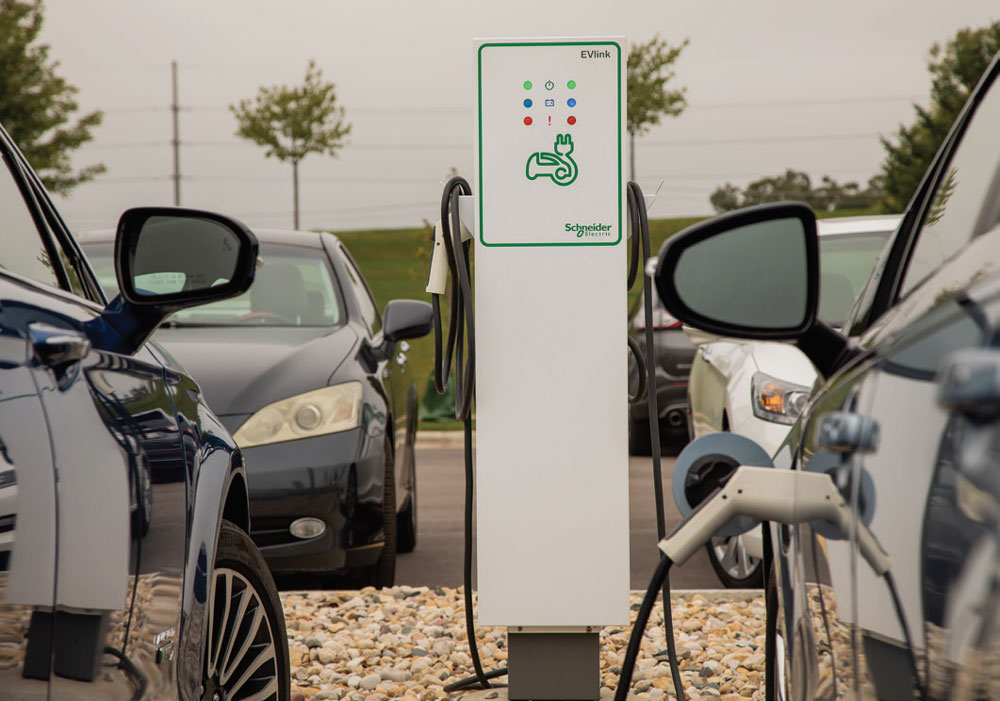
MGE also helps area employers of all sizes and multifamily developers who want to offer employees and residents charging. We discuss options and help them navigate the decision-making and implementation process.
EV engagement at MGE
MGE seeks to engage our employees in our efforts to grow the use of EVs. We offer five workplace charging stations, each with dual ports, to enable charging for employees while at work. Workplace charging offers many benefits, including employee attraction and retention, and support for sustainable initiatives.
MGE's EV fleet by the numbers
We have been testing commercially available fleet operations EVs for more than a decade. We are continuing to add all-electric or hybrid vehicles to our fleet, where possible. Our fleet includes a plug-in electric pickup truck, hybrid step van, hybrid bucket trucks and two all-electric Chevy Bolts.
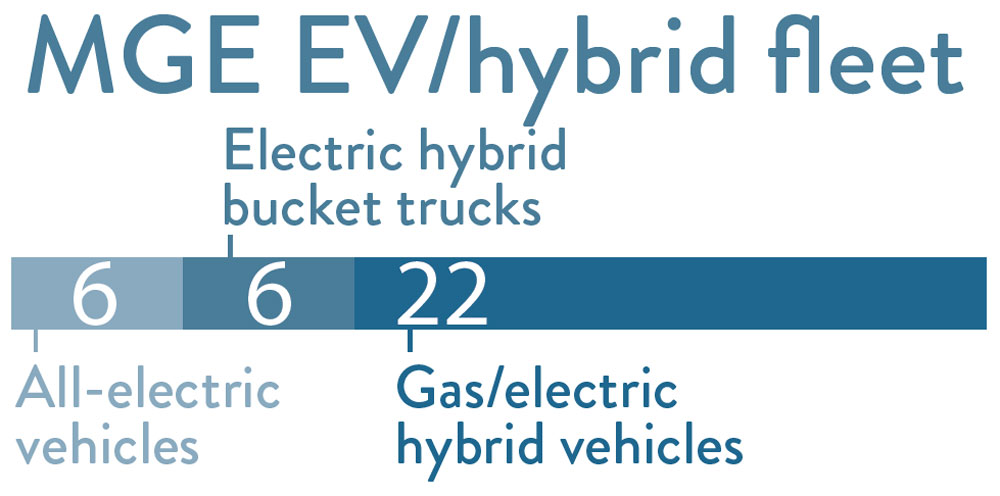
Electric buses coming to Madison
In 2020, three all-electric buses will become part of the City of Madison's Metro Transit (Metro) fleet. MGE worked with Metro to secure a $1.3 million federal grant for the zero-emission buses. MGE is partnering with the City of Madison to help electrify its bus fleet by 2030.
As part of the ongoing collaboration, MGE is providing:
- 100% of the required local matching funds for charging infrastructure for the three buses.
- Continued in-kind support and expertise to address technological issues and facilitate cost-effective and efficient use of energy.
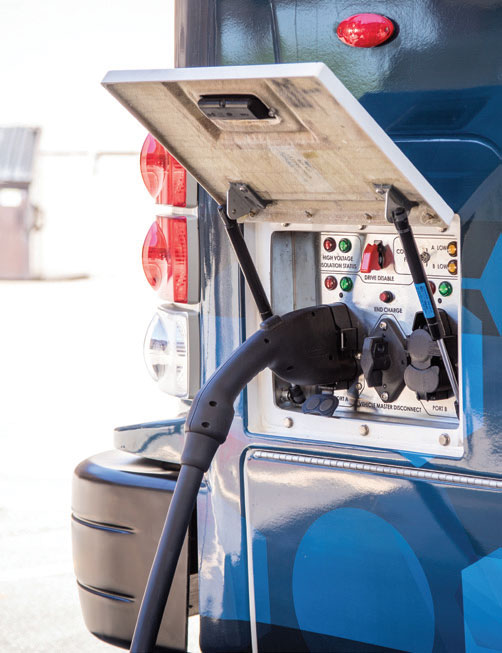
Zero-emission buses will play a key role in efforts to reduce carbon emissions. According to the U.S. Department of Transportation, for every zero-emission bus on the road, carbon emissions are reduced by nearly 1,700 tons over their estimated 12-year life span. With three electric buses, that would be an estimated carbon reduction of 5,100 tons. MGE continues to work with the City to seek ways to further the electrification of transportation.
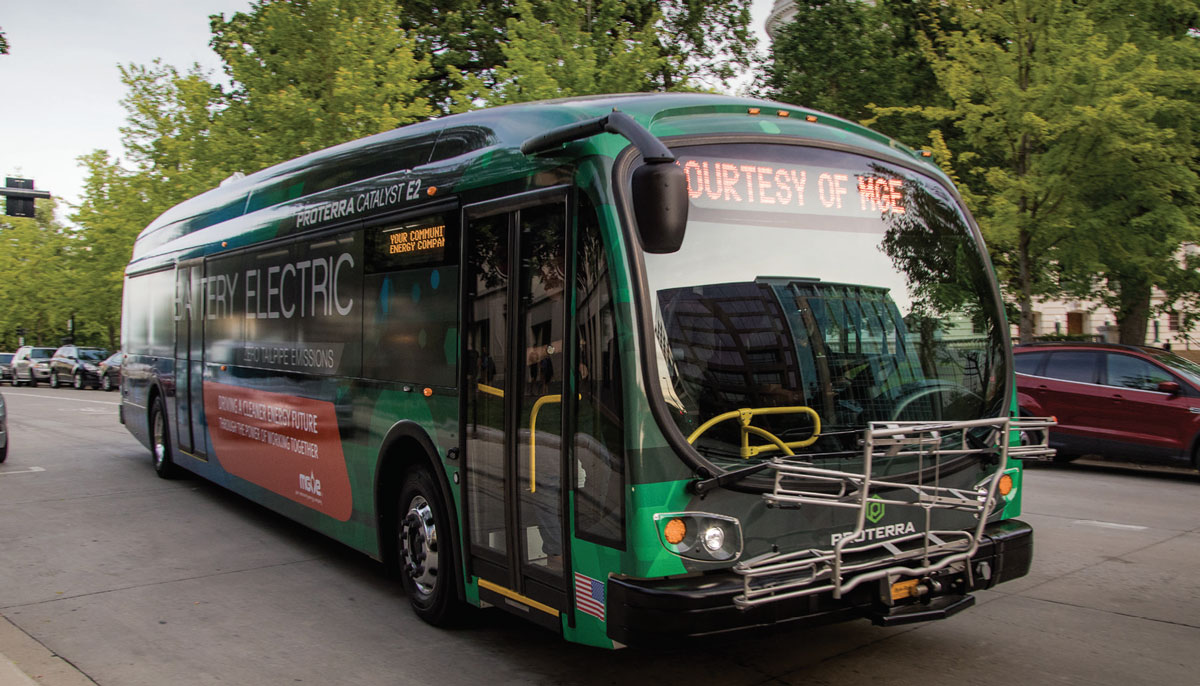
Partnering with Lyft
One of our newest partnerships is with Lyft, the ridesharing company. MGE is partnering with Lyft to increase the use of EV ridesharing in the Madison area and to grow awareness of the benefits of EVs. The two companies are offering a $500 bonus to Madison-area EV drivers who sign up to drive with Lyft.
Working with regional stakeholders
As part of the Great Plains Institute's Midcontinent Transportation Electrification Collaborative (M-TEC), we're working with other utilities, state governments, automakers, EV charging companies and environmental groups to advance EV infrastructure and increase use of EVs. Working together, our group conducts research, develops white papers and policy recommendations, and hosts workshops for stakeholders in the region.
Resources and tools to educate drivers
MGE helps to educate customers, businesses and our community at-large about the benefits of EVs. Our experts are on hand at many community events with our all-electric Chevy Bolt to share information on driving and charging EVs.

By "meeting customers where they are," we are able to connect customers to new technologies, such as EVs, and work together to advance sustainability and new technologies with all customers.
For example, in 2018, MGE and the Madison Area Chinese Community Organization (MACCO) partnered to host a "kick the tires" event featuring several EVs. MACCO helped to translate MGE's EV-related information into Chinese ahead of the event, which was held by one of MGE's DC fast charging stations. MGE regularly hosts "kick the tires" events in neighborhoods throughout our community to engage customers directly.
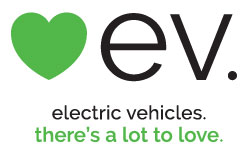
In 2018, MGE launched our LovEV website to help customers discover why "there's a lot to love" about EVs. LovEV highlights available models, explains charging options, and details cost and environmental savings. It is an easy, one-stop online resource at mge.com/LovEV.
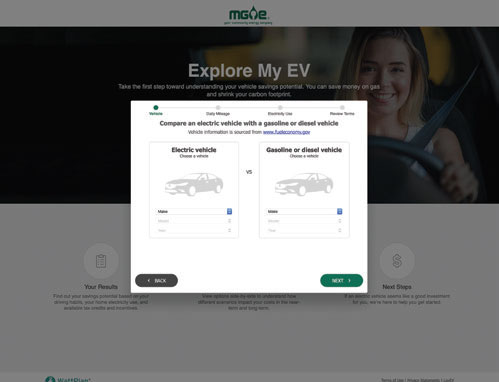
The online tool, Explore My EV, gives users the opportunity to compare the costs of plug-in hybrid and all-electric vehicles to gasoline-powered models. The tool, available at mge.com/exploremyev, considers commute distances, available tax credits and maintenance costs, among other things when doing its online analysis.
Collaborating to advance sustainability and innovation
By working together with our customers and other stakeholders, we can develop solutions to the energy challenges of our times and reach our shared energy goals. For example, MGE is a partner in the Midcontinent Power Sector Collaborative (MPSC) facilitated by the Great Plains Institute (GPI) out of Minneapolis, Minn.
The MPSC, consisting of utilities, agencies, non-governmental organizations and environmental groups, worked together to develop the Road Map to Decarbonization in the Midcontinent: Electricity Sector. MGE's local partners in the MPSC include the nonprofit Clean Wisconsin and the Dane County Office of Energy and Climate Change.
The MPSC brings together diverse viewpoints and priorities to develop options to continue driving toward a lower carbon future and better inform policymakers. The MPSC is one of many partnerships in which MGE is involved to further sustainable energy.
The Road Map identified that "a substantially decarbonized electricity sector is expected to grow and to enable the decarbonization of other sectors through efficiency and electrification."

We also partner to grow innovation. For example, MGE Energy is an investor and supporter of Energy Impact Partners (EIP), a utility-focused investment fund. EIP brings together capital and industry expertise to grow early-stage companies, such as Sense Labs.
MGE partnered with a number of residential customers to explore Sense Labs' home energy monitor. The monitor attaches to a residential electric panel to develop "profiles" of devices in the home that use electricity. An app gives customers access to their household energy use information, equipping them with real-time data to help manage their use.
Technical Work Group
MGE continues to work with the Citizens Utility Board and Clean Wisconsin as a Technical Work Group, examining innovative program ideas in a focused, deliberative fashion. The work group, which began in 2014, seeks to identify ways that MGE can be responsive to our customers' evolving energy needs while ensuring a modern, sustainable electric system. Some of MGE's pilot programs, such as Shared Solar, On Demand Savings, smart thermostat demand response (MGE Connect) and Charge@Home, have been informed by the group's efforts.
Ensuring reliability
MGE is a national leader in electric reliability. We are committed to transitioning to greater use of renewable resources while maintaining our top-ranked reliability.
For 2018, MGE's electric service reliability ranked number one in the country for the fewest number of electric outages and ranked second for the shortest duration of outages per customer, according to a nationwide industry survey including more than 80 electric utilities.
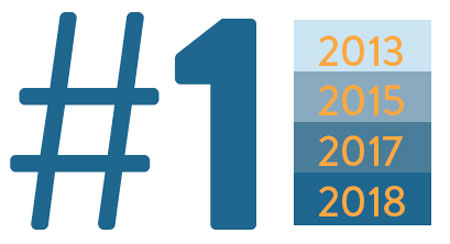
MGE has ranked in the top three utilities in the country for the fewest number of outages in each of the last 12 years. We have ranked number one nationwide for the fewest outages four of the last six years.
On average, MGE customers experience about one power outage every three years. That's compared to a nationwide average of more than four outages every three years.
A modern grid for the utility of the future
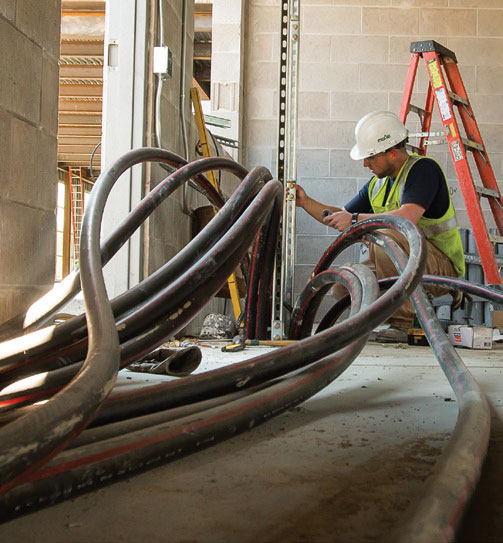
We take seriously our responsibility and commitment to those we serve. We're investing in the systems and capabilities to enable an electric grid that supports new technology such as distributed energy sources like solar and battery storage. We have an important role to play to ensure that these new resources and technologies are harnessed for the benefit of all customers.
